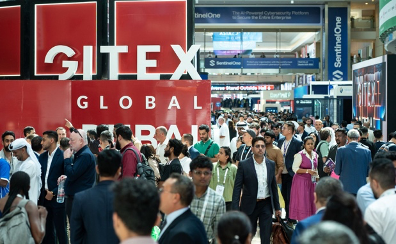The UAE’s drive for food security and sustainable practices is set to gain fresh momentum with the arrival of núaFEEDs, an Australian agri-tech company aiming to tackle one of the region’s most pressing environmental challenges: food waste.
Having finalised its registration in the UAE, núaFEEDs is preparing to launch a facility that will convert surplus bread waste into high-quality, sustainable livestock feed. The initiative supports the country’s circular economy ambitions and reinforces its wider food security strategy.
The company, which operates a family-run facility in Western Australia, brings with it more than 25 years of experience. Led by Chava and Eric Berrill, núaFEEDs has developed a process addressing three critical supply chain issues: the rising and volatile cost of livestock feed, the escalating volume of food waste, and the financial burden of waste disposal.
The decision to base its international expansion in the UAE was influenced by the nation’s bold sustainability vision and proactive policies around food security and waste reduction.
For grain-based food waste producers — including supermarkets, food manufacturers and bakeries — partnering with núaFEEDs presents multiple advantages. These include lower food waste disposal costs, simplified waste collection processes and certified reductions in greenhouse gas emissions and water consumption. Each tonne of bread diverted from landfill prevents more than 500kg of CO2 equivalent emissions and conserves 13 cubic metres of water otherwise embedded in grain production.
For livestock farmers and feed buyers, the company’s solution offers a stable, lower-cost and nutritionally rich alternative to imported feed. With commodity feed prices fluctuating markedly year on year, núaFEEDs’ fixed-price, locally sourced product promises greater price stability and reduced reliance on international supply chains. The company also adheres to strict biosecurity protocols developed under Australia’s stringent regulatory standards.
Key government and regulatory bodies — including the Ministry of Climate Change and Environment (MOCCAE), the UAE Food Security Office, and Abu Dhabi Agriculture and Food Safety Authority (ADAFSA) — are likely to view the project as a valuable contribution to the country’s National Food Security Strategy 2051. By promoting domestic feed alternatives, reducing imports, and curbing food waste, the initiative directly supports several national objectives.
The UAE, which must rely on imports for the majority of its feed ingredients due to its arid climate and scarce farmland, currently supports a livestock population of approximately 4.8 million and 44 poultry farms.
Across the GCC, 18 million tonnes of imported food are discarded in landfills annually, with cereals and grains accounting for roughly 19% of this total. The loss not only wastes nutrients but also exacerbates greenhouse gas emissions. núaFEEDs aims to recover grain-based waste and transform it into feed, retaining the nutritional value of the bread while producing a product capable of outperforming traditional grains such as barley in both protein and energy content — and at a competitive price point for feed buyers.
The company’s entry into the UAE signals a meaningful step towards advancing food security and circular economy practices in the region. By keeping resources within the food chain, reducing waste and emissions, and enhancing local production capabilities, núaFEEDs is poised to make a noteworthy contribution to the UAE’s sustainability ambitions.









